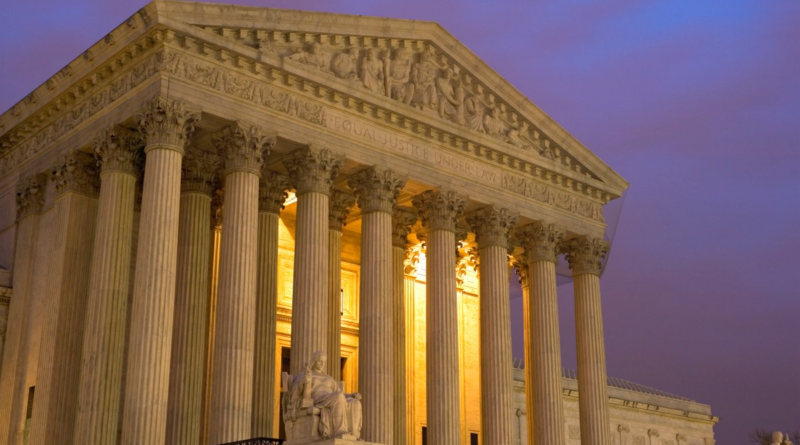Forget the debate, the Supreme Court just declared open season on regulators
As the country reels from a presidential debate that left no one looking good, the Supreme Court has swooped in with what could be one of the most consequential decisions it has ever made, in the context of the tech industry. By reversing a 40-year-old decision, the court has opened up regulators to endless interference by industry and the whims of judges as compromised and out of touch as they are.
The Supreme Court announced Friday morning that it had ruled 6-3 (you know who voted how) to overturn Chevron v. Natural Resources Defense Council, a case from 1984 that established a very important doctrine in federal regulation.
Federal law is by necessity broad, applying as it does across so many jurisdictions. Furthermore, some laws stay on the books for decades without modification. And so each law’s wording — just like the Constitution — requires interpretation, a task spread among all parties in the legal system, from lawyers to justices to amici curae.
The 1984 Chevron decision established that independent agencies like the EPA, SEC, and FCC also have a say in this. In fact, the decision found, in cases where the law is ambiguous, the courts must defer to these agencies in their capacity as experts in their fields.
As an example, think about something like the Clean Water Act providing certain legal protections for wetlands. Who defines whether a plot of land counts as wetlands? It can’t be interested parties like heavy industry or nature advocacy groups, since their interpretations will likely be mutually exclusive. And what are the chances that whatever judge gets handed the case has any expertise in the matter? Instead, in such cases, the EPA, staffed with notionally disinterested experts on wetlands, is empowered to settle ambiguities.
All right, so what do wetlands and the EPA have to do with technology? Well, who do you think defines “encryption” in law, or “communications,” “search and seizure,” or “reasonable expectation of privacy”?
The entire concept of net neutrality is perched atop the FCC’s interpretation of whether broadband data is an “information service” or a “communications service,” the terms written in the act empowering that agency.
If the FCC is not empowered to settle this ambiguity in a very old law that was written well before today’s broadband and mobile networks, who is? Whatever court takes the case brought by the telecommunications industry, which hates net neutrality and would prefer an interpretation where the FCC doesn’t regulate them at all. And if the industry doesn’t like that court’s interpretation, it gets a few more shots as the case rises towards — oh, the Supreme Court.
Interesting, remarked Justice Elena Kagan (as quoted by court reporter Amy Howe), that in “one fell swoop” the court had granted itself “exclusive power over every open issue — no matter how expertise-driven or policy-laden — involving the meaning of regulatory law.” In other words, the Supreme Court assigned itself the powers currently exercised by every regulatory agency in the country.
Tech’s play for time pays off
Why is this so consequential for tech? Because the tech industry has been facing down a wave of regulatory activity led by these agencies, operating in the vacuum of Congressional action. Due to a lack of effective federal laws in tech, agencies have had to step up and offer updated interpretations of the laws on the books.
Tech leaders have loudly and repeatedly asked for federal laws — not agency regulations — defining and limiting their industries. “Please,” they cry, “Give us a federal privacy law! Pass a law on location data! Pass a nice big law about how artificial intelligence should be used!”
They know very well that Congress is almost incapable of passing any such laws, partly because tech industry lobbyists quietly fight them in the background whenever one with teeth is proposed. You will be shocked to find out that despite a decade or more of tech asking for these laws, few or none have actually appeared! And when California passes one, they all lament: not like that! The pleas are made with fingers crossed, purely for optics.
Let us be optimistic for once and imagine that Congress passes a big law on AI, protecting certain information, requiring certain disclosures, and so on. It’s impossible that such a law would contain no ambiguities or purposeful vagueness to allow for the law to apply to as-yet-unknown situations or applications. Thanks to the Supreme Court, those ambiguities will no longer be resolved by experts.
(As an example of how this will play out, in the very decision issued today, Justice Gorsuch repeatedly referred to nitrogen oxide, a pollutant at issue, as nitrous oxide, laughing gas. This is the level of expertise we may expect.)
Every law has ambiguities. And at the frontiers of technology, ambiguity is even more common, since there is no precedent and lawmakers do not understand technical matters.
And so, looking forward, who defines “artificial intelligence,” or “scrape” or “personal information,” or “invasive”? Yesterday, it might have been the FCC or FTC, which with their experts in technology, industry, markets, and so on, would have made an informed decision and perhaps even solicited public opinion, as they often do in rulemaking processes. Today, it will be a judge in whatever state an industry decides has the friendliest or most gullible bench.
As Kagan argued, summarized again by Howe:
Kagan cited as one example a hypothetical bill to regulate artificial intelligence. Congress, she said, “knows there are going to be gaps because Congress can hardly see a week in the future.” So it would want people “who actually know about AI and are accountable to the political process to make decisions” about artificial intelligence. Courts, she emphasized, “don’t even know what the questions are about AI,” much less the answers.
This decision is arguably the largest single deregulatory action that could be taken, and as we have all observed, without regulation, tech — like any other big industry — will consolidate and exploit. The next few years, even under a pro-regulatory Democratic administration, will be a free-for-all. There is no barrier, and probably no downside, to industry lawyers challenging every single regulatory decision in court and arguing for a more favorable interpretation of the law.
We are entering a favorable climate for large companies that were likely to face regulatory scrutiny — now far less likely to be hammered for bad behavior since they can have “bad” redefined by a jurisdiction of their choosing.
But chaos favors the nimble, and large tech companies have proven themselves slow to react when faced with an industry-overturning technology (or so they believe) like AI. There is an opportunity here, frankly speaking, for those with money and ambition but blissfully unburdened by certain moral principles, to explore new methods and business models that might have attracted regulatory attention before.
If you thought you were being exploited before — you ain’t seen nothing yet.




